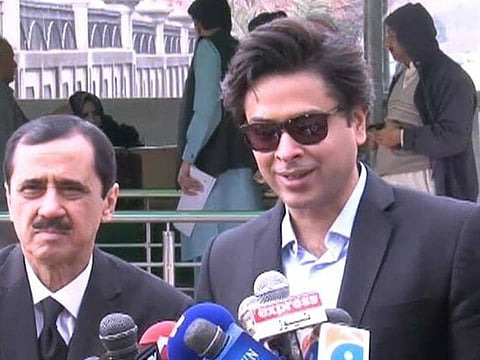Children’s right: One year jail and Rs50,000 fine for beating a child in Pakistan
Court orders to implement the law which was passed in 2013 to protect children’s rights

Dubai: In a landmark decision, a Pakistani court has banned corporal punishment for children by parent, guardians or teachers across the country.
The Islamabad High Court (IHC) on Thursday suspended Section 89 of the Pakistan Penal Code (PPC) and banned the practice of corporal punishment for children up to the age of 12 years.
Hearing a petition filed by famous Pakistani singer and philanthropist Shehzad Roy praying upon the court to prohibit the use of violence to discipline children, a division bench of the IHC presided by Chief Justice Athar Minallah, suspended the PPC section until further notice, the Express Tribune reported.
According to the new law, any person including parent involved in beating a child under 12 may face one year jail or Rs50,000 fine or both
Earlier, Section 89 of the PPC allowed parents, guardians and teachers to use corporal punishment in “good faith” to discipline the children.
Corporal punishment in school refers to disciplinary action taken by parents, guardians and teachers in response to some type of children’s misbehaviour. Corporal punishment might include spanking, slapping or pinching, although it is most commonly applied by hitting the buttocks with a paddle.
In his petition, Roy argued that section 89 can be held contradictory to the Constitution as it violates basic human rights and the United Nations Convention on the Rights of the Child.
Last year, a child passed away because of the use of corporal punishment in a school in Lahore," Roy's lawyer told the court while adding that the matter of abolishing the use of corporal punishment was of public interest.
The lawyer, while explaining the reason for Roy's interest in the matter, said that the singer-turned-activist has established an organisation for educational reforms.
“Punishing children is being considered an essential for improving learning. News of torture and punishment of children has been reported every day in the media,” stated the petition, urging the court to ban this practice in the best interest of the children.
Roy also sought full implementation of child protection laws and prayed to the court to direct the government to protect minors from physical and mental torture.
Speaking to the media outside Islamabad High Court, Roy said: "When a child is born, parents hit him, when he goes to school, teachers hit him, when he grows older and goes out in the society, police hits him to make him a better person. Contrarily, research shows that the use of violence only increases violence."
Justice Minallah, during the hearing, remarked that the country’s parliament had adopted a bill prohibiting corporal punishment for children in 2013. The bill, however, was not passed into law due to a technicality.
Roy’s counsel maintained that his client wanted the high court to prevent violence against children until relevant legislation is passed. “Corporal punishment affects a child’s mental and physical health,” he stressed.
After hearing the arguments, Justice Minallah directed the interior ministry to take immediate measures to protect the rights of children and sought a reply from the federal government on the matter by March 5.
Roy also took to Twitter to express his gratitude over the IHC decision. “I am grateful that the operation of brutal, inhuman and unconstitutional colonial-era law section 89 has been suspended by the [IHC] Chief Justice Athar Minallah on Zindagi Trust petition in all the federal jurisdiction & Islamabad.”
Sign up for the Daily Briefing
Get the latest news and updates straight to your inbox


